Maximizing the effectiveness of fuel treatments at the landscape scale is a key research and management need given the inability to treat all areas at risk from wildfire, and there is a growing body of scientific literature assessing this need. Rocky Mountain Research Station scientists, in collaboration with the Joint Fire Science Network, synthesized existing scientific literature on landscape-scale fuel treatment effectiveness in North American ecosystems through a systematic literature review.
A recent report, Effectiveness of fuel treatments at the landscape scale: State of understanding and key research gaps, provides key findings from four literature synthesis documents (concepts and fuel treatment effectiveness measurements, empirical, simulation, and case studies). These articles evaluate:
- The extent to which landscape fuel treatments mitigate adverse effects of wildfire,
- Provide opportunities to manage fire for beneficial effects of wildfire,
- Provide opportunities for cost efficient fire suppression strategies and maximize firefighter safety,
- Provide results to inform future fuel treatment planning, and
- Identify research gaps.
The Landscape Fuel Treatment Effectiveness webinar occurred on April 5, 2023. This was a joint event brought to you by the Northern Rockies Fire Science Network, Southern Rockies Fire Science Network, Great Basin Fire Science Exchange, Northwest Fire Science Consortium, Southwest Fire Science Consortium, and the Rocky Mountain Research Station.
Four Rocky Mountain Research Station scientists presented their latest research and were followed by a panel discussion and Q&A.
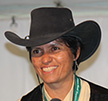
Introduction and Overview
Terrie Jain, Emeritus Forester, Rocky Mountain Research Station
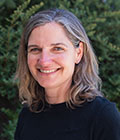
"Quantifying forest wildfire hazard and fuel treatment effectiveness from stands to landscapes"
Sharon Hood, Research Ecologist, Rocky Mountain Research Station
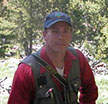
"Is there empirical evidence for landscape-level fuel treatment effectiveness?"
Shawn McKinney, Writer/Editor, Rocky Mountain Research Station
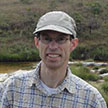
"Fuel treatment scenarios tested through simulation studies"
Jeff Ott, Research Ecologist, Rocky Mountain Research Station
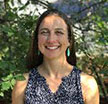
"Lessons learned from wildland fire case studies"
Ali Urza, Research Ecologist, Rocky Mountain Research Station
To learn more about this work, watch this video from the 2022 Association for Fire Ecology Conference: What We Know About Landscape Fuel Treatment Effectiveness
Related Documents from the Research and Publications Database
Recording(s)
Event Details
Apr 5 2023, 11am - 12:30pm